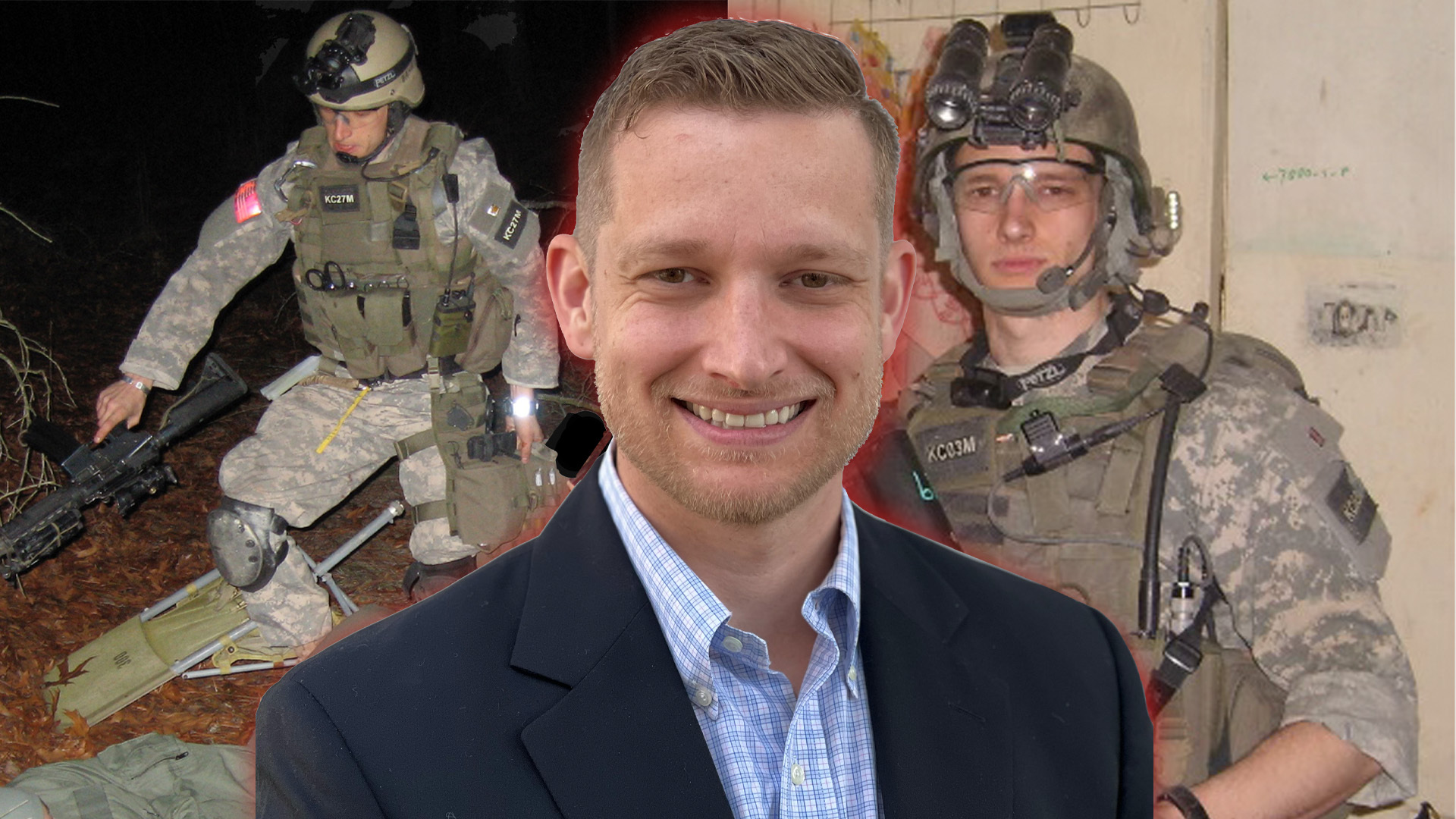

Dr. Marshall Bahr, M.D., launched Lead The Way Recovery this week, a new approach to addiction and substance abuse. He saw his first few patients on Monday, applying his experience as a Ranger medic and his extensive clinical background to treat those in need of help.
“Addiction doesn’t spare — it doesn’t care what color your skin is, how rich or poor you are, what your education level is. It just doesn’t care, it doesn’t discriminate,” Bahr said.
Bahr served in 1st Battalion, 75th Ranger Regiment for nearly seven years and deployed to Iraq and Afghanistan multiple times. Since graduating from the University of Nebraska Medical Center medical school in 2015, he’s worked in several different leadership roles as a physician before launching his own business to take matters into his own hands.
Bahr is dedicated to providing a “path to sustainable healing and empowerment” for those afflicted by addiction and ailing mental health, a growing problem within the veteran community.
Bahr has seen that firsthand as a clinician and found that as many sections of healthcare advance via researching new ways of assessments, diagnosis, and treatment, the addiction and substance abuse division of healthcare has seen little to no change.
Lead The Way Recovery’s mission is centered on finding an actual cure, not just a temporary fix. They are doing that by seeking out partnerships with research institutes to stay on top of groundbreaking treatments for addiction and substance abuse while building a comprehensive mental and behavioral health program to bolster treatment, getting at the root cause.
Subscribe to Task & Purpose Today. Get the latest military news and culture in your inbox daily.
Bahr has seen how broken the current system is, with a lot of clinics helping addicts get their ‘fix’ but not treating the root cause. He’s seen this throughout his clinical journey but has had his own challenges after leaving the Army.
He experienced substance abuse issues for a brief period after graduating from medical school. He asked for help, was diagnosed with PTSD, and has recovered from his bout with addiction. He is now using his experience as a launching point to help others.
“It became a very personal piece for me,” Bahr said. “Because now I’m seeing it from the side of a clinician, and I’m seeing it from the side as someone who needs help and was reaching out and asking for help.”
The veteran population is facing widespread issues of substance abuse and addiction. Bahr said both his personal experience and work as a clinician in the addiction setting, along with published research, shows that veterans have a higher probability of substance abuse and addiction, especially those with combat experience or other abnormally traumatic events.
Veterans have turned to maladaptive substances to cope with their trauma-related symptoms and the difficulties faced after separating from the military. Chronic pain secondary to military service is a compounding problem as well. Substance abuse and addiction are the end result, and healthcare has contributed to the problem.
Bahr said the VA has made progress in addressing its issue of “over-reliance on prescription medications” for the treatment of pain, mental health, and behavioral ailments. However, the issue still exists. The stigma of being weak and vulnerable persists, leading to people — especially veterans — avoiding therapy and addiction treatment.
“They don’t want to be labeled as weak. There’s a lot of lack of awareness, so what happens is they’re afraid to ask for help, and they don’t get that early intervention,” Bahr said. “That ends up leading down the pathway of substance abuse, which turns into addiction.”
It’s not usually an isolated issue, and addiction and mental health issues can go hand-in-hand, like PTSD, anxiety, and depression. So treating addiction without addressing the root cause is typically not successful. Bahr’s personal experience with substance abuse and PTSD is like a guiding light in his pursuit.
“In order to really treat the root cause of substance abuse issues, you’ve got to tease out if there are mental health issues and how you can treat them,” Bahr said. “I use my story with PTSD as a perfect example, right? And how that can compound into a disaster if you don’t treat the underlying cause.”
He and his clinical staff have gotten a jump on seeing their first patients, and Bahr said he’s received good feedback so far. And he’s in the process of breaking down barriers to treatment, whether it’s lack of a vehicle or money, Bahr has built-in options, and he’s expanding.
Strategic partnerships with pharmacies give Bahr’s patients access to cheaper medications for treatment, along with delivery as an option. Virtual appointments are available for anyone who prefers it, allowing those too shy to walk into a therapy appointment to do it from the comfort of their home or wherever they are.
Bahr’s business is open to all, and he’s determined to be innovative within the field and always seek the best treatment options for those afflicted by addiction and substance abuse issues. He is licensed throughout Ohio, aiming to expand coverage to as many states as possible.
Lead The Way Recovery is in the process of getting accredited for state-level Ohio Medicaid, but they currently accept many of the common private and federally backed insurances. Bahr built in an option for those who are uncovered by insurance, offering some of the lowest out-of-pocket costs available.
The latest on Task & Purpose
- End of an era: The last class of Marine Scout Snipers graduates on Dec. 15
- That one scene: The most unrealistic part of ‘Rambo: First Blood’
- AC-130 destroys truck after watching it launch ballistic missile at US troops in Iraq
- Army veteran launches ‘Hots & Cots,’ a Yelp for enlisted life
- Trench warfare tips: What US troops need to know from Ukraine